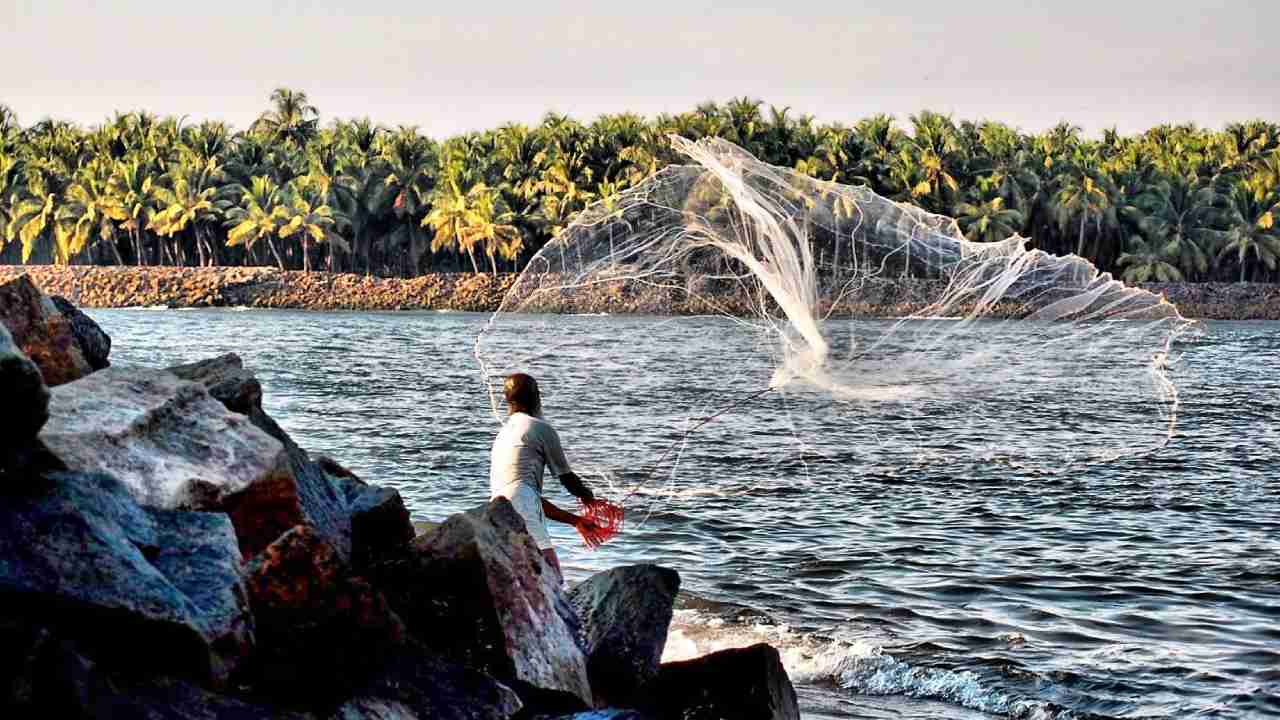On the third day of the World Trade Organization’s (WTO’s) 12th ministerial conference in Geneva, India came out strongly against a proposed global deal to eliminate harmful fisheries subsidies, as the plan did not provide a level playing field for countries.
India wants to subsidize millions of poor and low-income traditional fishermen because it is their livelihood.
Calling the text “imbalanced”, union commerce and industry minister Piyush Goyal said that, unlike other developed fishing nations, India does not operate a large fishing fleet to exploit the resources indiscriminately.
Moreover, subsidies to fishermen in India are among the lowest: $15 per year per fishing family, while rich countries pay $42,000, $65,000 and $75,000 per fishing family. India is also not involved in distant water fishing practices where the fleets operate outside the exclusive economic zone (EEZ) of the country.
India wants developed fishing countries to take more responsibility for the sustainable exploitation of fisheries resources.
“Several advanced fishing nations are indiscriminately exploiting the fisheries resources in others’ EEZ and the high seas by being members of multiple RFMOs (regional fisheries management organisations). India has argued in the past that such nations shall own the responsibility for the damage they have caused to the global fisheries wealth and should bring them under a tougher discipline regime. Still, to our distress, the present text does not stop such over-exploitation; instead, it indiscreetly allows such practices indefinitely,” Goyal said at MC12.
“Incidentally, I see a lot of countries very concerned about their fishermen. But what is the number of fishermen? One may have 1,500 fishermen, another may have 11,000…The concern of the small number of fishermen prevails over the livelihood of nine million fishermen in India. This is completely unacceptable! And that is the reason, India is opposed to the current text, also opposed to the way de minimis is sought to be institutionalised,” Goyal said.
The World Trade Organization is trying to reach a consensus on the issue of a 21-year-old agreement that aims to eliminate subsidies for illegal, unreported and unregulated (IUU) fishing and promote sustainable fishing. The agreement requires the consent of 164 WTO member states.
India says it will abide by the proposed fisheries deal, provided it is equitable and does not put member countries into a disadvantageous position in perpetuity.
A committee to discuss fisheries subsidies finalised the draft at the ministerial level on Friday, but it falls short of India’s demand to end unspecified energy subsidies. The Fisheries Subsidies Bill envisages a transition period of seven years for developing countries instead of 25 to exempt some developing countries from India’s proposed subsidy cuts. The transition period between member states has been discussed in recent weeks.


























